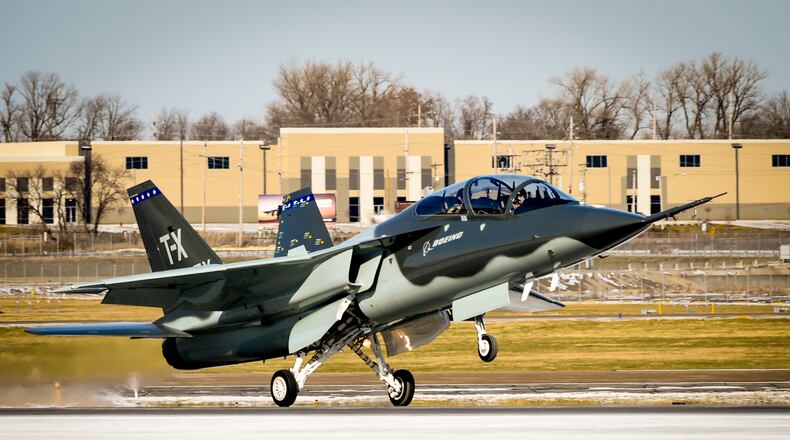The company, which had partnered with BAE Systems and L-3, did not release additional details about why it chose not to compete. It becomes the second team to announce it won’t participate after Raytheon and Italy’s Leonardo dropped out last week.
The jet trainer face-off, managed by the Air Force Life Cycle Management Center at Wright-Patterson Air Force Base, has a March 30 deadline for companies to turn in proposals. About 75 people work on the program.
“The Air Force seems eager to want to engineer an old-fashioned price shoot out and they knew they would have at least two (companies) eager to participate,” said Richard Aboulafia, a senior aerospace consultant with Virginia-based Teal Group.
Those two are Boeing, which teamed with Swedish aerospace maker Saab, and Lockheed Martin, which partnered with Korean Aerospace Industries to build the T-50, Aboulafia said. Northrop had been expected to produce a new design and Raytheon has offered the T-100.
In 2015, the Air Force chose Northrop Grumman to build the B-21 Raider, the next generation stealth bomber, in a contest with the team of Boeing and Lockheed Martin. Boeing filed a protest with the Government Accountability Office, but lost its appeal last year.
“Basically, you’ve got Boeing eager to win a military frame contract after the bomber loss,” Aboulafia said.
Deliveries of the T-X would begin in 2024, or possibly earlier, and continue over a decade. The new jet will replace the T-38, a supersonic trainer last delivered to the Air Force in 1972. The plane first flew in 1959 and has had numerous technology and life extension upgrades over the decades.
About the Author
